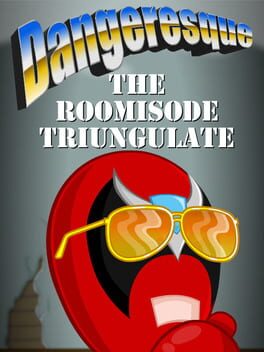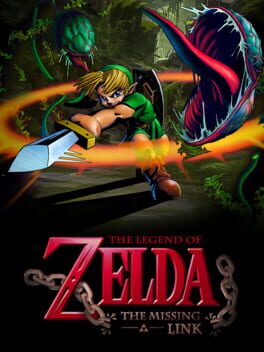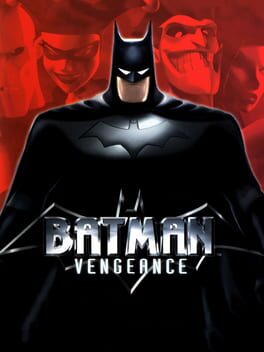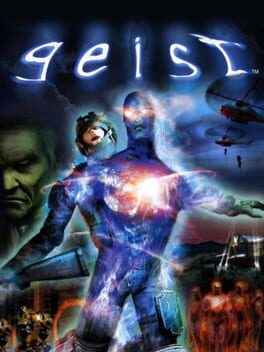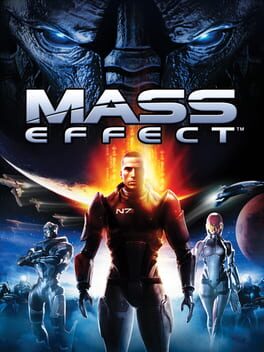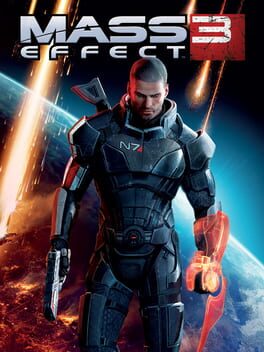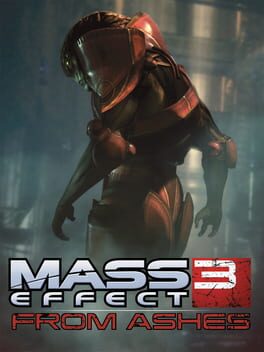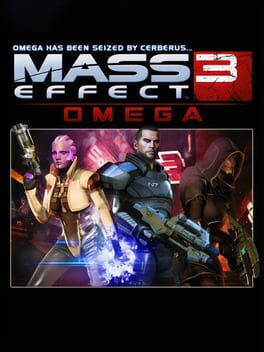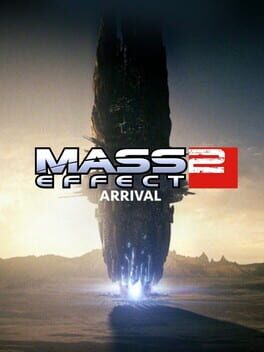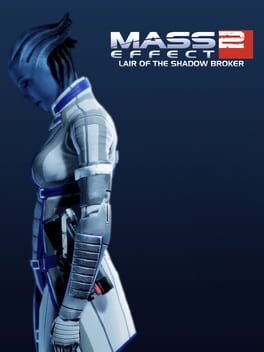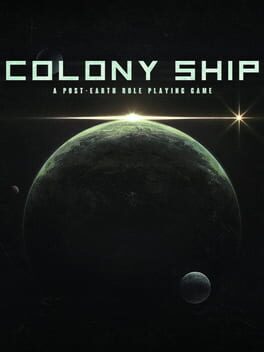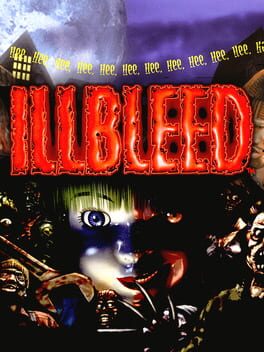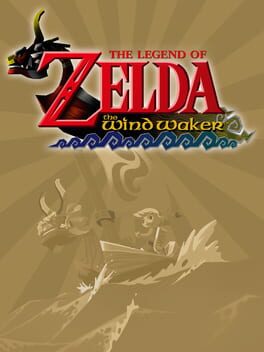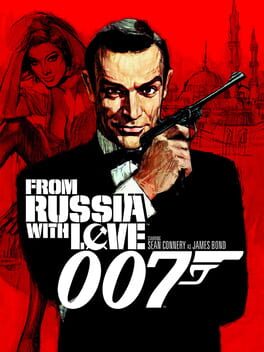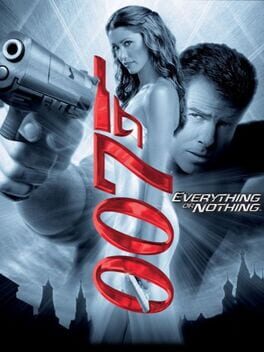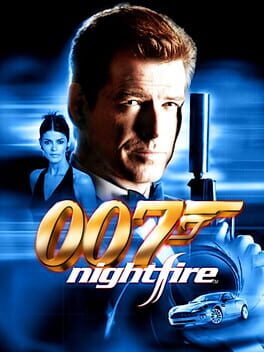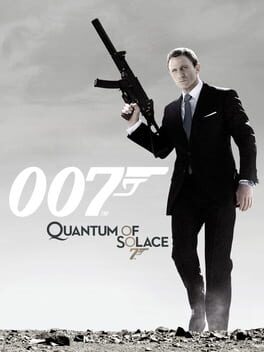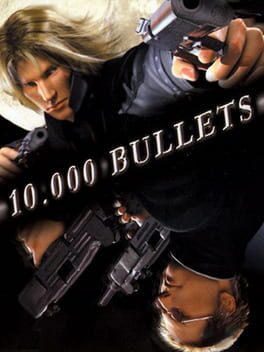NerdyMrSimms
19 reviews liked by NerdyMrSimms
Batman: Vengeance
2001
These are some loosely assembled notes on the game that I took as I went.
Movement is strangely clunky, like he has to walk and then get up to running speed even at full control stick tilt. He doesn’t like to smoothly change direction either.
Opening intro credits is very ahead of its time. Feels cinematic.
Great voice acting and good writing!! But of course, with the same writers and actors from Batman: TAS. So of course it is.
Me: “LET US PILOT THE BAT WING YOU COWARDS!”
Me, once piloting the Bat Wing: “OMG LET ME OUT OF THIS THING!” CRASHES 20 TIMES
The idea that after being knocked out, enemies will eventually get back up and fight you is interesting. You can handcuff them to take them out of the equation, but the handcuff system is a little puzzling because I was never sure when I did or didn’t have handcuffs or how many I had.
The idea that most of these goons could lay a finger on you, much less that 100 pound Mr. Freeze henchwomen could lay you out is preposterous. I’m talking flat on the ground here. Sigh.
Really digging the story, acting, cinematics. Definitely top tier. The graphics hold up really well even 20 years later.
The combat is almost what I would consider broken. The ability to block doesn’t help because the attack animations are too long and can’t be canceled and you often times get flattened by enemies who can haymaker you.
The game does an abysmal job of explaining things. (Note: I played my old save file from 20 years ago when I rented it, and I think there might be scenes where things got explained the first time through a level but not upon revisiting.) Some puzzles are introduced with no explanation, whereas others are.
Batmobile section is inexplicable. You missed a turn and failed. What? How? Why? I just started! It’s the first turn! You won’t even let me make it before insisting I missed it and FAILED. How did this make it through 2 minutes of play testing? I don’t even have enough time to drive to figure out the controls without failing first. Absolutely horrible game design. Absolutely unforgivable. (Update…I think this might be explained to you the first time through…that would make sense.)
Some interesting cinematic kind of moments, like running through a hallway while a helicopter shoots out the windows and you run ahead. Again, feels sort of ahead of its time here and there.
This game makes loading noises on my Wii I have never ever heard before. Maybe my console is failing?
Whether or not the Batmobile section is forgivable or not, the combat is unforgivable. You can’t guard until you enter combat, upon which the controls change, and if enemies are barreling at you, you have no choice but to let them land a series of hits on you before you can even guard. You can try to strike, but they usually beat you to the punch (literally) and if you choose to attack, you can’t guard.
There’s absolutely no flow or rhythm to the combat. There’s no dodge or counter moves. You can only guard, and there’s no right way to time an attack vs. a block. It’s not like the enemies have discernible patterns or openings. You just have to wait your turn and hope there’s an opening when you strike. You are pretty much playing roulette every time you throw a punch or kick. There’s no way to master the combat and emerge unscathed because you’re skilled.
Enemies have an annoying bear hug move that just happens. You can’t preempt it. You just have to wriggle free once someone uses it on you. Enemies late in the game spam the heck out of this. Others also get into a loop where they just punch you over and over again that you can’t break out of. Is the correct thing to guard until they stop? No! They won’t stop, and hits taken while blocking still sap your life slowly. If you want to interrupt the cycle, you have to hit back, and this works maybe 50% of the time without getting whacked.
The platforming is sometimes sloppy. I appreciate how good the game is at catching you instead of letting you fly off a ledge clumsily. Batman has a reliable twirl around and grab the ledge animation that he’ll do.
The implementation of various gadgets is kinda neat. Using Batarangs to disarm enemies is rewarding, if clunky, but the challenge makes it interesting. Cycling through the entire gamut with one button in order to find the right one is a sad system, and while it makes good use of dual analog aiming, the C-Stick dead zone is rough and the look sensitivity is a tad slow. It made me appreciate how the Arkham games eventually loop gadgets into the combat, because you don’t get that here.
FINAL THOUGHTS: This game frustrated me to no end at times. I dig the art style, voice acting, and story. It feels exactly like The Animated Series in the best possible way. Some of the puzzles are kinda nifty. The combat fluctuates between uninspired and straight BS. The level design is ho hum, and I got lost once or twice. I think most of my issues with the game stem from the combat—the difficulty, the frustration, and the tedium. I’m glad I played it, but I won’t be revisiting anytime soon.
Movement is strangely clunky, like he has to walk and then get up to running speed even at full control stick tilt. He doesn’t like to smoothly change direction either.
Opening intro credits is very ahead of its time. Feels cinematic.
Great voice acting and good writing!! But of course, with the same writers and actors from Batman: TAS. So of course it is.
Me: “LET US PILOT THE BAT WING YOU COWARDS!”
Me, once piloting the Bat Wing: “OMG LET ME OUT OF THIS THING!” CRASHES 20 TIMES
The idea that after being knocked out, enemies will eventually get back up and fight you is interesting. You can handcuff them to take them out of the equation, but the handcuff system is a little puzzling because I was never sure when I did or didn’t have handcuffs or how many I had.
The idea that most of these goons could lay a finger on you, much less that 100 pound Mr. Freeze henchwomen could lay you out is preposterous. I’m talking flat on the ground here. Sigh.
Really digging the story, acting, cinematics. Definitely top tier. The graphics hold up really well even 20 years later.
The combat is almost what I would consider broken. The ability to block doesn’t help because the attack animations are too long and can’t be canceled and you often times get flattened by enemies who can haymaker you.
The game does an abysmal job of explaining things. (Note: I played my old save file from 20 years ago when I rented it, and I think there might be scenes where things got explained the first time through a level but not upon revisiting.) Some puzzles are introduced with no explanation, whereas others are.
Batmobile section is inexplicable. You missed a turn and failed. What? How? Why? I just started! It’s the first turn! You won’t even let me make it before insisting I missed it and FAILED. How did this make it through 2 minutes of play testing? I don’t even have enough time to drive to figure out the controls without failing first. Absolutely horrible game design. Absolutely unforgivable. (Update…I think this might be explained to you the first time through…that would make sense.)
Some interesting cinematic kind of moments, like running through a hallway while a helicopter shoots out the windows and you run ahead. Again, feels sort of ahead of its time here and there.
This game makes loading noises on my Wii I have never ever heard before. Maybe my console is failing?
Whether or not the Batmobile section is forgivable or not, the combat is unforgivable. You can’t guard until you enter combat, upon which the controls change, and if enemies are barreling at you, you have no choice but to let them land a series of hits on you before you can even guard. You can try to strike, but they usually beat you to the punch (literally) and if you choose to attack, you can’t guard.
There’s absolutely no flow or rhythm to the combat. There’s no dodge or counter moves. You can only guard, and there’s no right way to time an attack vs. a block. It’s not like the enemies have discernible patterns or openings. You just have to wait your turn and hope there’s an opening when you strike. You are pretty much playing roulette every time you throw a punch or kick. There’s no way to master the combat and emerge unscathed because you’re skilled.
Enemies have an annoying bear hug move that just happens. You can’t preempt it. You just have to wriggle free once someone uses it on you. Enemies late in the game spam the heck out of this. Others also get into a loop where they just punch you over and over again that you can’t break out of. Is the correct thing to guard until they stop? No! They won’t stop, and hits taken while blocking still sap your life slowly. If you want to interrupt the cycle, you have to hit back, and this works maybe 50% of the time without getting whacked.
The platforming is sometimes sloppy. I appreciate how good the game is at catching you instead of letting you fly off a ledge clumsily. Batman has a reliable twirl around and grab the ledge animation that he’ll do.
The implementation of various gadgets is kinda neat. Using Batarangs to disarm enemies is rewarding, if clunky, but the challenge makes it interesting. Cycling through the entire gamut with one button in order to find the right one is a sad system, and while it makes good use of dual analog aiming, the C-Stick dead zone is rough and the look sensitivity is a tad slow. It made me appreciate how the Arkham games eventually loop gadgets into the combat, because you don’t get that here.
FINAL THOUGHTS: This game frustrated me to no end at times. I dig the art style, voice acting, and story. It feels exactly like The Animated Series in the best possible way. Some of the puzzles are kinda nifty. The combat fluctuates between uninspired and straight BS. The level design is ho hum, and I got lost once or twice. I think most of my issues with the game stem from the combat—the difficulty, the frustration, and the tedium. I’m glad I played it, but I won’t be revisiting anytime soon.
Geist
2005
Geist is a game that anyone who is a Gamecube enthusiast will have at least heard about about and know of. Often assumed to be Nintendo’s “Halo Killer”, this has a small kernel of truth to it. In the early 2000s, after seeing the success of Halo CE, Nintendo began shopping around NA for a first person shooter with “unique mechanics”, of all devs, N-space, a company known mostly for licensed games, impressed Nintendo with their pitch about an FPS where you could become a ghost(the working title was “FEAR”, imagine a game with that title coming out in 2005 haha). Despite numerous delays, the partnership was amicable and N-Space produced one of the most interesting IPs in Nintendo’s library.
During the course of development, Shigeru Miyamoto and Kensuke Tanabe were fascinated by the possession mechanic, and used their authority to heavily alter the direction of the game, Geist’s similarity to Halo soon became only barely there and it instead ended up being far more like Metroid Prime (with some beats Half Life 1), which greatly benefited the game, as the change in focus to puzzle centric game play made it far more memorable for any one who plays it in the long run. Unfortunately this also came at the cost of the FPS mechanics feeling half baked and unpolished.
Geist’s possession mechanic is its most memorable and polished feature. Raimi’s spectral form is mostly invisible and in order to progress through 85% of the game, you need to possess objects, people, and animals to solve environmental puzzles. In order for a person or animal to be possessed, you have to scare them first, this leads to some very entertaining novelties, like using a TV to project a demonic image of a cat to scare rats, taking over a steam pipe to make it explode to draw a guards attention, hijacking a vending machine to make soda fly at a scientist then having a sink fill with blood to make him fall backwards, making dog food fly out of a bowl, etc.
This need to scare living vessels contextualizes the feeling of playing as a ghost brilliantly, and allows each puzzle to have time to breathe.
The progression of each step in the puzzles rely entirely on the players logical observation skills, A chef is going to naturally investigate a malfunctioning oven, a dog barking will obviously scare small prey animals like rats, a technician will try and diagnose what kind of malware is on a laptop etc. Geist nails its name sake when engaging with the possessions, rewarding the player for problem solving and playing on the satisfaction of their correct assumptions.
Unfortunately the FPS part of Geist fares far worse, and while thankfully you won’t be engaging with it that often, it’s always boring to unpleasant when you have to do these segments.
The biggest issue is the lack of good audio and visual feedback when your bullets hit your targets. 99% of the time you have no visual or audio indicators that you’re doing damage, but this doesn’t mean the game is difficult, on the contrary, Geist is one of the easiest FPSes you’ll ever play. Each soldier goes down in 2-4 hits, and the later Demon enemies are incredibly weak up close.
The camera turning speed is also very sluggish, for the majority of the game when doing puzzles, this is tolerable, but it makes tracking enemies a pain during combat sections. To compensate for this, and the overall unfinished nature of the shooting, The hit boxes for your weapons are enormous, your reticule will often light up red while a solid foot off the target, so any potential frustration is replaced with boredom.
Sometimes you can possess enemy turrets or explosive crates, but due to how powerful you already are, this generally pointless sans a set piece and puzzle in chapter 5, the latter is the only interesting section of combat in the game, as you need to strategically possess the right turrets in a tight time frame.
Geist does feature a good handful of boss fights, but they aren’t very exciting or fun to engage with, at the very least each attack is very well telegraphed and the arenas are large enough that the sluggish camera turning is never an issue, since one can just move aside or vertically to avoid attacks.
Given how powerful Raimi is, the bosses are very easy to take care of, You will often do so much chip damage with the rifles the game provides you with for most encounters that you can generally bypass scripted weak points, And each boss area is very generous with health packs, so you will never be in genuine danger.
Geist suffers from very poor enemy variety, you will fight a total of five enemies for the entire game and all of them get mogged easily by the insanely high damage of your guns. 90% of the combat is killing soldiers made of paper, sometimes small imp demons who die in one hit, and every once in a while spider demons who die in 3 seconds when you simply get right next to them and hold down the fire button. There’s zero tension in the FPS segments due to your high damage output and the plentiful health packs in every 3rd room.
I saved the last enemy type for last as they only show up near the end game, and aren’t even really an enemy to begin with, they are basically a rope trap that pulls you into fire or enemy soldiers, you simply deal with these by firing your grenades. Making the final stretch of combat near the end game tension-less.
Due to the possession mechanic being the central focus, you will have infinite ammo when in combat to compensate for being unable to possess focused soldiers, This isn’t balanced very well given every weapon has massive magazine sizes, and grenades instantly restock, so for many mob fights, you can just wail on the Z button.
There is a Multiplayer mode, But it isn’t very good as it uses the same unfinished shooting mechanics in three basic TDM, CTF and DM modes. If you really like the gun play might get something out of it, as the bots can actually be quite vicious if you crank up their AI to the max. Though map design is nothing more than a few layered empty rooms.
Geist is one of the better looking Gamecube games with a realistic art style, god rays shimmer convincingly and there’s some great particle density, your guns show off impressive smoke trails after being fired. The textures have impressive depth, showcasing bumpy rusted edges, brushed steel shimmering, and pustule infested skin on the demons.
The art direction is quite nice, Raimi’s ghost form in particular is striking, looking like a spectral nerve chart, the darkened, heavily industrial volks facility feels like a truly oppressive prison with it’s tight corridors, dim blueish lighting, and winding geometry.
The UI is rather basic, but looks fine overall, with the map you can access pressing left on the D-pad being very reminiscent of Metroid prime, though given how distinct each room is, you will never need to use it.
The games Frame rate is mostly stable, but drops heavily in combat sections if heavy amounts of gunfire is active, going all the way down from 60-low 20s at many points, if it wasn’t for these sections being laughably easy, this could very well have made the game borderline unbearable during said sections.
Animation quality is passable. The mo cap for cut scenes is basic but not distracting because the actors aren’t constantly moving slightly like so many games of the 7th gen onward would be plagued with, enemy bodies often go flying after dying and it can look very comical at times, but bosses as mentioned before have clear, exaggerated tells with their moves, so fighting the latter is never frustrating.
Musically Geist is highly competent but tracks fail with their intended mood. Most of the game for when you’ll be in ghost form, the game sometimes plays dark atmospheric songs, these don’t really make you feel that powerful because Raimi always feels powerful, and the same can be applied to music that plays during combat. As the Increased tempo in the percussion and horns don’t make you feel like you are facing a threat, due to you always being the biggest threat from a game play standpoint.
Geist’s Voice acting is not very good, the delivery of every character is incredibly flat and bland. Nothing stands out as truly bad or good, but every line sounds like the actors are thumbing through each word that they have also memorized several times. While the tone of each voice fits each character, the delivery leaves much to be desired.
Geist’s plot is initially interesting though it’s not executed particularly well. The initial premise of a man weaponizing his interest in the occult to conquer the earth after the death of his sister left him with nothing is a solid concept. And there is some minor influences of Half Life 1 here as well, given the volk facility was researching another dimension and there’s a “accident” that sets the demons free.
Of course this has little impact, despite the Demon lord being incredibly powerful, for some reason he needs to weaponize human ghosts to carry out his plans, despite quite a few lesser demons coming in by the seemingly hundreds mid game. And the reveal that he has been in control of volks’s corpse for decades makes the initial premise not being relevant a huge letdown.
The Demons never feel like a threat of course due to how strong Raimi is, and the fact that each of the bosses are fought multiple times with zero changes in tactics. Despite the insistence from your allies that these creatures are a threat to the human race, the consistent jobbing sure does not make this feel truthful.
Geist’s human cast isn’t that memorable either. Aside from the secondary antagonist being afraid of dogs, no one stands out as likeable or dislike-able, Every one speaks and carries themselves in a professional demeanour and the flat voice acting reinforces how bland everyone is.
Raimi himself is a silent protagonist, but he’s rarely expressive in cut scenes. At most you may get the occasional smirk and/or gasp, but in general he’s just your vehicle for the world.
On a better note the story is excellently paced, Geist knows just when to kick you back into action after a gauntlet of puzzles, with waves of firefights leading to a boss encounter, that then winds you down again for some exploration with no puzzle solving for a good bit, giving your brain a good rest before you engage in the same excellent structure again.
Geist is a very bizarre IP in Nintendo's catalogue. Originally intended to be a Halo competitor, it instead became a Metroid prime lite with fantastic puzzles and excellent production values, with an unfinished FPS attached to it. It’s worth playing for sheer curiosities sake as the novelties of the ghost puzzles will elicit feelings of moderate joy in seeing how the possession subjects react or how Raimi can fuck with said objects, The music may not elicit the mood it intends due to how OP you are, but it is generally enjoyable, the story and cast are a bit humdrum, but the pacing is also excellent so you won’t be dreading any of the lows for long, and while the combat isn’t good, the puzzles that make up the majority of your playtime more than make this worth a look.
7/10.
During the course of development, Shigeru Miyamoto and Kensuke Tanabe were fascinated by the possession mechanic, and used their authority to heavily alter the direction of the game, Geist’s similarity to Halo soon became only barely there and it instead ended up being far more like Metroid Prime (with some beats Half Life 1), which greatly benefited the game, as the change in focus to puzzle centric game play made it far more memorable for any one who plays it in the long run. Unfortunately this also came at the cost of the FPS mechanics feeling half baked and unpolished.
Geist’s possession mechanic is its most memorable and polished feature. Raimi’s spectral form is mostly invisible and in order to progress through 85% of the game, you need to possess objects, people, and animals to solve environmental puzzles. In order for a person or animal to be possessed, you have to scare them first, this leads to some very entertaining novelties, like using a TV to project a demonic image of a cat to scare rats, taking over a steam pipe to make it explode to draw a guards attention, hijacking a vending machine to make soda fly at a scientist then having a sink fill with blood to make him fall backwards, making dog food fly out of a bowl, etc.
This need to scare living vessels contextualizes the feeling of playing as a ghost brilliantly, and allows each puzzle to have time to breathe.
The progression of each step in the puzzles rely entirely on the players logical observation skills, A chef is going to naturally investigate a malfunctioning oven, a dog barking will obviously scare small prey animals like rats, a technician will try and diagnose what kind of malware is on a laptop etc. Geist nails its name sake when engaging with the possessions, rewarding the player for problem solving and playing on the satisfaction of their correct assumptions.
Unfortunately the FPS part of Geist fares far worse, and while thankfully you won’t be engaging with it that often, it’s always boring to unpleasant when you have to do these segments.
The biggest issue is the lack of good audio and visual feedback when your bullets hit your targets. 99% of the time you have no visual or audio indicators that you’re doing damage, but this doesn’t mean the game is difficult, on the contrary, Geist is one of the easiest FPSes you’ll ever play. Each soldier goes down in 2-4 hits, and the later Demon enemies are incredibly weak up close.
The camera turning speed is also very sluggish, for the majority of the game when doing puzzles, this is tolerable, but it makes tracking enemies a pain during combat sections. To compensate for this, and the overall unfinished nature of the shooting, The hit boxes for your weapons are enormous, your reticule will often light up red while a solid foot off the target, so any potential frustration is replaced with boredom.
Sometimes you can possess enemy turrets or explosive crates, but due to how powerful you already are, this generally pointless sans a set piece and puzzle in chapter 5, the latter is the only interesting section of combat in the game, as you need to strategically possess the right turrets in a tight time frame.
Geist does feature a good handful of boss fights, but they aren’t very exciting or fun to engage with, at the very least each attack is very well telegraphed and the arenas are large enough that the sluggish camera turning is never an issue, since one can just move aside or vertically to avoid attacks.
Given how powerful Raimi is, the bosses are very easy to take care of, You will often do so much chip damage with the rifles the game provides you with for most encounters that you can generally bypass scripted weak points, And each boss area is very generous with health packs, so you will never be in genuine danger.
Geist suffers from very poor enemy variety, you will fight a total of five enemies for the entire game and all of them get mogged easily by the insanely high damage of your guns. 90% of the combat is killing soldiers made of paper, sometimes small imp demons who die in one hit, and every once in a while spider demons who die in 3 seconds when you simply get right next to them and hold down the fire button. There’s zero tension in the FPS segments due to your high damage output and the plentiful health packs in every 3rd room.
I saved the last enemy type for last as they only show up near the end game, and aren’t even really an enemy to begin with, they are basically a rope trap that pulls you into fire or enemy soldiers, you simply deal with these by firing your grenades. Making the final stretch of combat near the end game tension-less.
Due to the possession mechanic being the central focus, you will have infinite ammo when in combat to compensate for being unable to possess focused soldiers, This isn’t balanced very well given every weapon has massive magazine sizes, and grenades instantly restock, so for many mob fights, you can just wail on the Z button.
There is a Multiplayer mode, But it isn’t very good as it uses the same unfinished shooting mechanics in three basic TDM, CTF and DM modes. If you really like the gun play might get something out of it, as the bots can actually be quite vicious if you crank up their AI to the max. Though map design is nothing more than a few layered empty rooms.
Geist is one of the better looking Gamecube games with a realistic art style, god rays shimmer convincingly and there’s some great particle density, your guns show off impressive smoke trails after being fired. The textures have impressive depth, showcasing bumpy rusted edges, brushed steel shimmering, and pustule infested skin on the demons.
The art direction is quite nice, Raimi’s ghost form in particular is striking, looking like a spectral nerve chart, the darkened, heavily industrial volks facility feels like a truly oppressive prison with it’s tight corridors, dim blueish lighting, and winding geometry.
The UI is rather basic, but looks fine overall, with the map you can access pressing left on the D-pad being very reminiscent of Metroid prime, though given how distinct each room is, you will never need to use it.
The games Frame rate is mostly stable, but drops heavily in combat sections if heavy amounts of gunfire is active, going all the way down from 60-low 20s at many points, if it wasn’t for these sections being laughably easy, this could very well have made the game borderline unbearable during said sections.
Animation quality is passable. The mo cap for cut scenes is basic but not distracting because the actors aren’t constantly moving slightly like so many games of the 7th gen onward would be plagued with, enemy bodies often go flying after dying and it can look very comical at times, but bosses as mentioned before have clear, exaggerated tells with their moves, so fighting the latter is never frustrating.
Musically Geist is highly competent but tracks fail with their intended mood. Most of the game for when you’ll be in ghost form, the game sometimes plays dark atmospheric songs, these don’t really make you feel that powerful because Raimi always feels powerful, and the same can be applied to music that plays during combat. As the Increased tempo in the percussion and horns don’t make you feel like you are facing a threat, due to you always being the biggest threat from a game play standpoint.
Geist’s Voice acting is not very good, the delivery of every character is incredibly flat and bland. Nothing stands out as truly bad or good, but every line sounds like the actors are thumbing through each word that they have also memorized several times. While the tone of each voice fits each character, the delivery leaves much to be desired.
Geist’s plot is initially interesting though it’s not executed particularly well. The initial premise of a man weaponizing his interest in the occult to conquer the earth after the death of his sister left him with nothing is a solid concept. And there is some minor influences of Half Life 1 here as well, given the volk facility was researching another dimension and there’s a “accident” that sets the demons free.
Of course this has little impact, despite the Demon lord being incredibly powerful, for some reason he needs to weaponize human ghosts to carry out his plans, despite quite a few lesser demons coming in by the seemingly hundreds mid game. And the reveal that he has been in control of volks’s corpse for decades makes the initial premise not being relevant a huge letdown.
The Demons never feel like a threat of course due to how strong Raimi is, and the fact that each of the bosses are fought multiple times with zero changes in tactics. Despite the insistence from your allies that these creatures are a threat to the human race, the consistent jobbing sure does not make this feel truthful.
Geist’s human cast isn’t that memorable either. Aside from the secondary antagonist being afraid of dogs, no one stands out as likeable or dislike-able, Every one speaks and carries themselves in a professional demeanour and the flat voice acting reinforces how bland everyone is.
Raimi himself is a silent protagonist, but he’s rarely expressive in cut scenes. At most you may get the occasional smirk and/or gasp, but in general he’s just your vehicle for the world.
On a better note the story is excellently paced, Geist knows just when to kick you back into action after a gauntlet of puzzles, with waves of firefights leading to a boss encounter, that then winds you down again for some exploration with no puzzle solving for a good bit, giving your brain a good rest before you engage in the same excellent structure again.
Geist is a very bizarre IP in Nintendo's catalogue. Originally intended to be a Halo competitor, it instead became a Metroid prime lite with fantastic puzzles and excellent production values, with an unfinished FPS attached to it. It’s worth playing for sheer curiosities sake as the novelties of the ghost puzzles will elicit feelings of moderate joy in seeing how the possession subjects react or how Raimi can fuck with said objects, The music may not elicit the mood it intends due to how OP you are, but it is generally enjoyable, the story and cast are a bit humdrum, but the pacing is also excellent so you won’t be dreading any of the lows for long, and while the combat isn’t good, the puzzles that make up the majority of your playtime more than make this worth a look.
7/10.
Mass Effect
2007
Mass Effect series Review + Retrospective #1: Mass Effect
I’ve had a rollercoaster of a relationship with the original Mass Effect. I first played it during my formative years as a teen around a decade ago, shortly after the release of ME2 and years before ME3. I remember falling in love with Bioware’s earlier sci-fi RPG, Star Wars: Knights of the Old Republic, and seeing a new sci-fi IP by the company during a Steam sale. I made my (second ever, possibly?) purchase on Steam and added both ME1 and ME2 to my library.
I loved it, enjoying every second in this richly detailed, imaginative, and creative new sci-fi universe, finishing it and moving on immediately to ME2. As the years went by and I would occasionally go back and replay the trilogy, I felt ME1 lacking more and more on each replay. Eventually, it fell out of the trilogy replay circulation, opting to go for the Genesis recap DLC for 2 instead of actually playing 1.
Something clicked for me out of nowhere sometime in the last couple years, and after deciding to finally play ME1 again after so much time, I just instantly fell in love with it again. Maybe it’s an appreciation for a simpler plot after the chaos that unfolds in 2 and 3, maybe it’s the smaller cast of more well-defined characters, or maybe it’s just the absolutely impeccable vibe that ME1 gives off. I’d say ME1 is my favorite in the trilogy nowadays.
While obviously not as vast or detailed as something like a Star Wars or Star Trek, Mass Effect packs a metric ton of world-building, interesting lore, and creative alien species, planets, and technologies into just its first outing. As the trilogy expands in scope and gives more insight into its universe, it’s honestly grown on me as one of my favorite sci-fi universes in general. It leans a lot further into the space opera side of things like Star Wars, while preserving an optimistic tone found in classic Trek. The Turians being avian space Romans is cool. The Geth being a sentient artificial race that rose up against their oppressors is cool. The Krogan being giant space viking frogs that are so powerful that they had to be literally neutered to avoid taking over the entire galaxy is cool as hell. The ideas of the Mass Relays, the Citadel, the Reapers, even the way the “bullets” are actually individual specs of metal that are blown off using mass effect fields are just so cool, it’s impossible to not have a great time in this universe.
Now uh, on to the actual game part.
When it comes to the third-person shooting, even in the Legendary Edition, ME1 is not great. It feels slow and clunky, weapons feel inaccurate and overheat too quickly, and skills and powers often bafflingly miss targets dead center on your reticule. Squad management adds another layer of control to the combat, but the whole thing feels so clunky that you usually just feel like you’re bullshitting your way through encounters. AI is particularly stupid, and often requires babysitting them or watching them die in an instant on harder difficulties.
The RPG elements are at their strongest here, and are very rapidly lost in its sequels. ME1 actually features randomized loot as opposed to the couple dozen or so unique guns in ME2. I think this is a blessing and curse, as it gives the player actual rewards for exploring and doing side quests, but at the same time, the weapons lack any individuality. Every pistol looks and feels like every other pistol, etc. However, I really appreciate the ability to craft your build to your playstyle. Classes feel incredibly similar in the later games, whereas two separate Sentinel/Engineer/Adept/whichever builds in ME1 can feel pretty different. ME1 feels fresher to replay than the other two games because of this I think.
Combat’s only a third of the game in Mass Effect, however, and the game excels in its other two main gameplay areas. You’ll spend a good 50% of your initial playthrough engaged in conversation with various NPCs throughout the galaxy. While the 2007 models aren’t particularly great to look at nowadays, even with the remaster, Mass Effect is brilliantly acted and the voiceover artists do a fantastic job of bringing the galaxy’s characters to life. Great voice acting will be a staple of the series, and with a few minor exceptions (MaleShep’s voice actor learning how to emote in the second game), basically everyone is perfectly performed. Combined with the great writing of Drew Karpyshyn, they help make the game’s extended dialogue and conversation scenes feel worth paying attention to and not skipping.
The dialogue wheel popularized by this game is fairly controversial, but strictly within the setting of Mass Effect, I think it is effective. You can always count on the top option being the Paragon choice, with the bottom being for Renegades. The left options are used for getting more info or asking more detailed questions and these are usually worth the time to listen to. Getting the most out of every conversation and reading the extra Codex entries really help illustrate and flesh out the universe. It’s really quite immersive. The only issue I have with the dialogue system is sometimes it’s a bit unpredictable with what is actually said. The game uses a shorthand version of what’s to be said for the dialogue prompts, so it can be a little surprising to see Shepard come off as a bigger boy scout/asshole than intended. I’m sure many players accidentally started a romance they didn’t want to, or pulled their guns on a random NPC and came off as a total psychopath. On one hand, the choices allow for complete player control over what kind of person Shepard is. On the other, it sort of falls victim to the typical Bioware take on morality – oftentimes choices come down to being Space Jesus or Cartoon Villain, with very little nuance in between.
Finally, I consider planet exploration the third major gameplay area of the original Mass Effect. Though admittedly the uncharted worlds offer very little to actually explore outside of gathering collectibles for a handful of assignments and fighting a few enemy types in pre-fabricated, identical buildings, something about the exploration in the Mako is incredibly charming to me. Some of ME1’s best visuals are present on the uncharted worlds, and driving around an unknown alien planet while the absolutely outstanding score by Jack Wall plays is genuinely a great time. Those moments are incredibly memorable and nostalgic for me, despite them really being quite shallow in practice. I don’t really mind them as the Mako is entirely optional apart from a couple required sections in story missions, but those too are very short. The uncharted worlds are there purely as optional content, and I’m honestly glad they’re there for those who want to experience them. I wouldn’t recommend exploring each and every one, but I’d definitely suggest checking a few out.
I acknowledge ME1 is most peoples’ least favorite for a reason. It’s far from perfect. For every great thing the game does, it does 2 mediocre things. But I love it, I think it’s a beautiful mess. I love the characters, I love the story, I love the universe, and I love the soundtrack. I’m really glad the release of the Legendary Edition has gotten more people to play the original, as it captures a very specific feeling and vibe that the sequels slightly miss the mark on.
Anyway, if you let Wrex die you didn’t beat the game.
I’ve had a rollercoaster of a relationship with the original Mass Effect. I first played it during my formative years as a teen around a decade ago, shortly after the release of ME2 and years before ME3. I remember falling in love with Bioware’s earlier sci-fi RPG, Star Wars: Knights of the Old Republic, and seeing a new sci-fi IP by the company during a Steam sale. I made my (second ever, possibly?) purchase on Steam and added both ME1 and ME2 to my library.
I loved it, enjoying every second in this richly detailed, imaginative, and creative new sci-fi universe, finishing it and moving on immediately to ME2. As the years went by and I would occasionally go back and replay the trilogy, I felt ME1 lacking more and more on each replay. Eventually, it fell out of the trilogy replay circulation, opting to go for the Genesis recap DLC for 2 instead of actually playing 1.
Something clicked for me out of nowhere sometime in the last couple years, and after deciding to finally play ME1 again after so much time, I just instantly fell in love with it again. Maybe it’s an appreciation for a simpler plot after the chaos that unfolds in 2 and 3, maybe it’s the smaller cast of more well-defined characters, or maybe it’s just the absolutely impeccable vibe that ME1 gives off. I’d say ME1 is my favorite in the trilogy nowadays.
While obviously not as vast or detailed as something like a Star Wars or Star Trek, Mass Effect packs a metric ton of world-building, interesting lore, and creative alien species, planets, and technologies into just its first outing. As the trilogy expands in scope and gives more insight into its universe, it’s honestly grown on me as one of my favorite sci-fi universes in general. It leans a lot further into the space opera side of things like Star Wars, while preserving an optimistic tone found in classic Trek. The Turians being avian space Romans is cool. The Geth being a sentient artificial race that rose up against their oppressors is cool. The Krogan being giant space viking frogs that are so powerful that they had to be literally neutered to avoid taking over the entire galaxy is cool as hell. The ideas of the Mass Relays, the Citadel, the Reapers, even the way the “bullets” are actually individual specs of metal that are blown off using mass effect fields are just so cool, it’s impossible to not have a great time in this universe.
Now uh, on to the actual game part.
When it comes to the third-person shooting, even in the Legendary Edition, ME1 is not great. It feels slow and clunky, weapons feel inaccurate and overheat too quickly, and skills and powers often bafflingly miss targets dead center on your reticule. Squad management adds another layer of control to the combat, but the whole thing feels so clunky that you usually just feel like you’re bullshitting your way through encounters. AI is particularly stupid, and often requires babysitting them or watching them die in an instant on harder difficulties.
The RPG elements are at their strongest here, and are very rapidly lost in its sequels. ME1 actually features randomized loot as opposed to the couple dozen or so unique guns in ME2. I think this is a blessing and curse, as it gives the player actual rewards for exploring and doing side quests, but at the same time, the weapons lack any individuality. Every pistol looks and feels like every other pistol, etc. However, I really appreciate the ability to craft your build to your playstyle. Classes feel incredibly similar in the later games, whereas two separate Sentinel/Engineer/Adept/whichever builds in ME1 can feel pretty different. ME1 feels fresher to replay than the other two games because of this I think.
Combat’s only a third of the game in Mass Effect, however, and the game excels in its other two main gameplay areas. You’ll spend a good 50% of your initial playthrough engaged in conversation with various NPCs throughout the galaxy. While the 2007 models aren’t particularly great to look at nowadays, even with the remaster, Mass Effect is brilliantly acted and the voiceover artists do a fantastic job of bringing the galaxy’s characters to life. Great voice acting will be a staple of the series, and with a few minor exceptions (MaleShep’s voice actor learning how to emote in the second game), basically everyone is perfectly performed. Combined with the great writing of Drew Karpyshyn, they help make the game’s extended dialogue and conversation scenes feel worth paying attention to and not skipping.
The dialogue wheel popularized by this game is fairly controversial, but strictly within the setting of Mass Effect, I think it is effective. You can always count on the top option being the Paragon choice, with the bottom being for Renegades. The left options are used for getting more info or asking more detailed questions and these are usually worth the time to listen to. Getting the most out of every conversation and reading the extra Codex entries really help illustrate and flesh out the universe. It’s really quite immersive. The only issue I have with the dialogue system is sometimes it’s a bit unpredictable with what is actually said. The game uses a shorthand version of what’s to be said for the dialogue prompts, so it can be a little surprising to see Shepard come off as a bigger boy scout/asshole than intended. I’m sure many players accidentally started a romance they didn’t want to, or pulled their guns on a random NPC and came off as a total psychopath. On one hand, the choices allow for complete player control over what kind of person Shepard is. On the other, it sort of falls victim to the typical Bioware take on morality – oftentimes choices come down to being Space Jesus or Cartoon Villain, with very little nuance in between.
Finally, I consider planet exploration the third major gameplay area of the original Mass Effect. Though admittedly the uncharted worlds offer very little to actually explore outside of gathering collectibles for a handful of assignments and fighting a few enemy types in pre-fabricated, identical buildings, something about the exploration in the Mako is incredibly charming to me. Some of ME1’s best visuals are present on the uncharted worlds, and driving around an unknown alien planet while the absolutely outstanding score by Jack Wall plays is genuinely a great time. Those moments are incredibly memorable and nostalgic for me, despite them really being quite shallow in practice. I don’t really mind them as the Mako is entirely optional apart from a couple required sections in story missions, but those too are very short. The uncharted worlds are there purely as optional content, and I’m honestly glad they’re there for those who want to experience them. I wouldn’t recommend exploring each and every one, but I’d definitely suggest checking a few out.
I acknowledge ME1 is most peoples’ least favorite for a reason. It’s far from perfect. For every great thing the game does, it does 2 mediocre things. But I love it, I think it’s a beautiful mess. I love the characters, I love the story, I love the universe, and I love the soundtrack. I’m really glad the release of the Legendary Edition has gotten more people to play the original, as it captures a very specific feeling and vibe that the sequels slightly miss the mark on.
Anyway, if you let Wrex die you didn’t beat the game.
Mass Effect 3
2012
Mass Effect series Review + Retrospective #3: Mass Effect 3
Oh boy, Mass Effect 3. The game that divided a fan base and practically killed the IP until Andromeda's incredibly short lived "revival" in 2017. Call me a contrarian, but I feel like the years have been kind to ME3 and it's probably my second favorite game in the original trilogy.
The gameplay got a big upgrade from ME2, and I think it's a pretty competent third person shooter now. Combat feels snappy and fast paced, enemies are far cleverer and more aggressive, and battles are more intense than ever. Enemy variety, which was a huge sour point for me in ME2, is remedied here with three distinct factions of enemies (Cerberus, Reapers, and Geth), each with a half dozen or so unique enemy types within that faction. The game constantly mixes up who you'll be fighting, so it keeps things a lot fresher and fun. They've dropped any pretense of it being an RPG and leaned fully into action-shooter gameplay, which in this case is much better than the clunky fusion seen in ME2.
Weapon variety is also a massive improvement. With all DLC or when playing the Legendary Edition rerelease, there are dozens of weapons, most of which are satisfying to use. ME2 had a handful of useful weapons, but ME3 has so many, it's purely up to player preference. Weapons are also no longer restricted by class, so you can roll out with your preferred weapons regardless of what class your Shepard is, with weapon weight only affecting power cooldown speed.
Squadmates are much stronger now. It actually feels like BioWare overcorrected from the previous titles, and now certain squadmates, especially Garrus, can basically solo the game for you. Shepard also feels godlike in this game, blowing away hordes of foes without breaking a sweat. This increased power level makes the game feel too easy for the most part, so I recommend boosting the difficulty up to Insanity to keep things feeling more balanced.
With all the new gameplay features out of the way, time to shift focus to the most controversial aspect of Mass Effect 3 - its story and writing. I'll be the first to admit ME3's story is an absolute mess. Drew Karpyshyn's exit is felt and for every high (Tuchanka, Rannoch, Grissom Academy) there is an equal low (The Illusive Man being reduced to a cartoon villain, Udina is evil now! just Kai Leng in general). It feels like ME3 drops the ball on as much as it resolves storylines in a satisfying way. It's a very mixed bag.
Probably most common complaint is the handling of ME2's squadmates. Yeah, it really sucks. BioWare wrote themselves into a corner allowing the entire cast to potentially die in the Suicide Mission, so most of the cast is reduced to cameos that are easily exchanged with a new character. Miranda, Mordin, Legion, and to a certain extent Thane, are more plot important and show up as more than cameos, but the rest are mostly found in missable side quests. It really does no favors for the "ME2 is skippable" argument.
However, Tuchanka and Rannoch stand out as some of my favorite moments in the trilogy. Fantastically paced missions with incredibly memorable setpieces, as well as satisfying and rewarding finales to two of the longest running plotlines in the series, being the Krogan Genophage and the Quarian-Geth war. These missions, as well as the Citadel Coup, are also some of the best examples of choices mattering, pulling your decisions from all 3 games to make a complicated conclusion. Brilliant stuff from a game often maligned for its lack of choice consequences.
Perhaps most importantly, ME3 does a phenomenal job of making you feel weak and utterly hopeless in the grand scheme of the Reaper war. The game shows the overwhelming defeat at the hands of the Reapers in detail, and we get to see nearly all the main alien races' homeworlds in ruin. You really do feel like you're on a hopeless mission and like you're watching the actual end of the world around you. ME3 has an impeccably bleak and horrific tone all the way up to its final moments.
Oh man... the final moments of ME3. Most will agree the game ends on an utterly baffling and bizarre note - I'll say more in detail in my review for the Extended Cut DLC, but for now I'll leave it at, yes, it really is as bad as its reputation may lead you to believe.
I want to talk a bit about the original release’s multiplayer – a big part of the game that was sadly cut from the Legendary Edition release.
I think the ME3 multiplayer was a shock for everyone. Basically everyone thought that it was going to be a forced and tacked-on crappy MP mode, which was super common in the industry at the time, with single-player franchises getting lame multiplayer modes thrown in – Batman: Arkham, Bioshock, and Tomb Raider being notable examples. However – I think most would agree that the MP mode in ME3 was an absolute gem. Despite it being a simple horde mode style cooperative game, there’s just something about it that’s super fun, and I have great memories playing it with friends and random strangers online. It feels really cool to finally be able to play as the various alien races and even more were added in later updates.
It was supported for a shockingly long time – and for free. EA and Bioware released 4 separate expansions for it, adding more playable characters, a ton of new weapons, new maps, and even the Collectors from ME2 as a new enemy type. There’s so much to collect and upgrade in the MP mode that it had an even longer lifespan than ME3 itself. It helped lessen the blow of the original game’s ending and I really wish it had been included in the Legendary Edition and given it a new breath of life.
After all’s said and done, I still do really like Mass Effect 3. I think it plays the best of the three, has the greatest enemy and mission variety, and does a wonderful job in its setting and environmental storytelling. However, the game’s very clearly rushed development time took a big hit on the writing and story. So much of it feels cobbled together in a hurry to get it out the door, especially the dreadful ending. Mass Effect 3 does so much right, but drops the ball in so many other places, that it’s kept from being a great game and ends up just being a good one.
Oh boy, Mass Effect 3. The game that divided a fan base and practically killed the IP until Andromeda's incredibly short lived "revival" in 2017. Call me a contrarian, but I feel like the years have been kind to ME3 and it's probably my second favorite game in the original trilogy.
The gameplay got a big upgrade from ME2, and I think it's a pretty competent third person shooter now. Combat feels snappy and fast paced, enemies are far cleverer and more aggressive, and battles are more intense than ever. Enemy variety, which was a huge sour point for me in ME2, is remedied here with three distinct factions of enemies (Cerberus, Reapers, and Geth), each with a half dozen or so unique enemy types within that faction. The game constantly mixes up who you'll be fighting, so it keeps things a lot fresher and fun. They've dropped any pretense of it being an RPG and leaned fully into action-shooter gameplay, which in this case is much better than the clunky fusion seen in ME2.
Weapon variety is also a massive improvement. With all DLC or when playing the Legendary Edition rerelease, there are dozens of weapons, most of which are satisfying to use. ME2 had a handful of useful weapons, but ME3 has so many, it's purely up to player preference. Weapons are also no longer restricted by class, so you can roll out with your preferred weapons regardless of what class your Shepard is, with weapon weight only affecting power cooldown speed.
Squadmates are much stronger now. It actually feels like BioWare overcorrected from the previous titles, and now certain squadmates, especially Garrus, can basically solo the game for you. Shepard also feels godlike in this game, blowing away hordes of foes without breaking a sweat. This increased power level makes the game feel too easy for the most part, so I recommend boosting the difficulty up to Insanity to keep things feeling more balanced.
With all the new gameplay features out of the way, time to shift focus to the most controversial aspect of Mass Effect 3 - its story and writing. I'll be the first to admit ME3's story is an absolute mess. Drew Karpyshyn's exit is felt and for every high (Tuchanka, Rannoch, Grissom Academy) there is an equal low (The Illusive Man being reduced to a cartoon villain, Udina is evil now! just Kai Leng in general). It feels like ME3 drops the ball on as much as it resolves storylines in a satisfying way. It's a very mixed bag.
Probably most common complaint is the handling of ME2's squadmates. Yeah, it really sucks. BioWare wrote themselves into a corner allowing the entire cast to potentially die in the Suicide Mission, so most of the cast is reduced to cameos that are easily exchanged with a new character. Miranda, Mordin, Legion, and to a certain extent Thane, are more plot important and show up as more than cameos, but the rest are mostly found in missable side quests. It really does no favors for the "ME2 is skippable" argument.
However, Tuchanka and Rannoch stand out as some of my favorite moments in the trilogy. Fantastically paced missions with incredibly memorable setpieces, as well as satisfying and rewarding finales to two of the longest running plotlines in the series, being the Krogan Genophage and the Quarian-Geth war. These missions, as well as the Citadel Coup, are also some of the best examples of choices mattering, pulling your decisions from all 3 games to make a complicated conclusion. Brilliant stuff from a game often maligned for its lack of choice consequences.
Perhaps most importantly, ME3 does a phenomenal job of making you feel weak and utterly hopeless in the grand scheme of the Reaper war. The game shows the overwhelming defeat at the hands of the Reapers in detail, and we get to see nearly all the main alien races' homeworlds in ruin. You really do feel like you're on a hopeless mission and like you're watching the actual end of the world around you. ME3 has an impeccably bleak and horrific tone all the way up to its final moments.
Oh man... the final moments of ME3. Most will agree the game ends on an utterly baffling and bizarre note - I'll say more in detail in my review for the Extended Cut DLC, but for now I'll leave it at, yes, it really is as bad as its reputation may lead you to believe.
I want to talk a bit about the original release’s multiplayer – a big part of the game that was sadly cut from the Legendary Edition release.
I think the ME3 multiplayer was a shock for everyone. Basically everyone thought that it was going to be a forced and tacked-on crappy MP mode, which was super common in the industry at the time, with single-player franchises getting lame multiplayer modes thrown in – Batman: Arkham, Bioshock, and Tomb Raider being notable examples. However – I think most would agree that the MP mode in ME3 was an absolute gem. Despite it being a simple horde mode style cooperative game, there’s just something about it that’s super fun, and I have great memories playing it with friends and random strangers online. It feels really cool to finally be able to play as the various alien races and even more were added in later updates.
It was supported for a shockingly long time – and for free. EA and Bioware released 4 separate expansions for it, adding more playable characters, a ton of new weapons, new maps, and even the Collectors from ME2 as a new enemy type. There’s so much to collect and upgrade in the MP mode that it had an even longer lifespan than ME3 itself. It helped lessen the blow of the original game’s ending and I really wish it had been included in the Legendary Edition and given it a new breath of life.
After all’s said and done, I still do really like Mass Effect 3. I think it plays the best of the three, has the greatest enemy and mission variety, and does a wonderful job in its setting and environmental storytelling. However, the game’s very clearly rushed development time took a big hit on the writing and story. So much of it feels cobbled together in a hurry to get it out the door, especially the dreadful ending. Mass Effect 3 does so much right, but drops the ball in so many other places, that it’s kept from being a great game and ends up just being a good one.
Mass Effect series Review + Retrospective #3.2: From Ashes
From Ashes is the first story expansion for ME3 and was originally released as part of the game’s special edition back at the initial release. It includes a single mission and a new squadmate, Javik, the last surviving Prothean.
Right off the bat, I think including a living Prothean is in itself kind of contrived and stupid from a story perspective. Adding to the stupidity, outside of Liara, there’s basically no characters that think this is a big deal? People just go, “huh that’s interesting” and move on.
However, I think Javik is a fantastic character. He is a powerful squadmate with great utility and strength in combat, and is pretty well-written. He has a lot more dialogue than ME2’s DLC companions, and he actually feels like a real character and a part of your team, rather than an underwritten tag-along. Javik also drops one of the rawest lines in the franchise with “Stand amongst the ashes of a trillion dead souls, and ask the ghosts if honor matters. The silence is your answer.”
The mission on Eden Prime is whatever, it’s cool to visit the first place we saw in the trilogy again, but it’s pretty short and nothing particularly interesting happens. The real focus of this DLC is Javik as a party member and character.
I think that this probably should have been part of the vanilla game. Not only does he actually feel like a real part of the cast and story, without the DLC, Liara is potentially the only biotic on your squad if you’re rolling with Ashley over Kaidan. I feel like a Prothean is important enough to be part of the default game.
This should’ve been part of the default experience, but nowadays most people are gonna be playing with the Legendary Edition, so it doesn’t really matter in 2022.
From Ashes is the first story expansion for ME3 and was originally released as part of the game’s special edition back at the initial release. It includes a single mission and a new squadmate, Javik, the last surviving Prothean.
Right off the bat, I think including a living Prothean is in itself kind of contrived and stupid from a story perspective. Adding to the stupidity, outside of Liara, there’s basically no characters that think this is a big deal? People just go, “huh that’s interesting” and move on.
However, I think Javik is a fantastic character. He is a powerful squadmate with great utility and strength in combat, and is pretty well-written. He has a lot more dialogue than ME2’s DLC companions, and he actually feels like a real character and a part of your team, rather than an underwritten tag-along. Javik also drops one of the rawest lines in the franchise with “Stand amongst the ashes of a trillion dead souls, and ask the ghosts if honor matters. The silence is your answer.”
The mission on Eden Prime is whatever, it’s cool to visit the first place we saw in the trilogy again, but it’s pretty short and nothing particularly interesting happens. The real focus of this DLC is Javik as a party member and character.
I think that this probably should have been part of the vanilla game. Not only does he actually feel like a real part of the cast and story, without the DLC, Liara is potentially the only biotic on your squad if you’re rolling with Ashley over Kaidan. I feel like a Prothean is important enough to be part of the default game.
This should’ve been part of the default experience, but nowadays most people are gonna be playing with the Legendary Edition, so it doesn’t really matter in 2022.
Mass Effect 3: Omega
2012
Mass Effect series Review + Retrospective #3.4: Omega
The third story expansion for ME3, Omega brings us back to the titular asteroid colony and back into the more gritty, violent underbelly of the Mass Effect universe as we help Aria retake her throne.
Honestly, not a whole lot to say about this one. It’s about 2 to 3 hours of ME3 combat, which isn’t a bad thing, but that’s about it. There’s pretty minimal dialogue and only a couple of worthwhile choices to make. It is mostly action-focused, introducing two new enemy types that are only present on Omega, and they add a little more variety to the Cerberus forces. You can also get two new biotic bonus powers upon completion of the DLC, and Flare in particular is incredibly powerful and fun to use.
Omega is still one of the coolest locations in the ME universe, and it’s nice to see new parts of it. It’s also cool to get to use Aria as a squadmate finally, as well as the brand new gang leader Nyreen, who I believe was our first ever look at female Turians. I do wish you could bring along one of your own party members, for example, I think Garrus would have some interesting things to say about Omega, considering his storyline in ME2.
Oddly, Omega features, as far as I’m aware, the only Class-related check in the series? Engineer Shepards get a unique interrupt around the midway point of the DLC that allows their Class selection to actually have an impact on the game, which is really cool and something I wish was in more of the game.
If you like ME3’s combat, you’ll probably get a kick out of this one. On repeat playthroughs, it can kind of be a little bit long in the tooth, especially dragging by the end. Also, Bray should’ve been a party member, it’s a shame we go through the entire trilogy without a Batarian squaddie.
The third story expansion for ME3, Omega brings us back to the titular asteroid colony and back into the more gritty, violent underbelly of the Mass Effect universe as we help Aria retake her throne.
Honestly, not a whole lot to say about this one. It’s about 2 to 3 hours of ME3 combat, which isn’t a bad thing, but that’s about it. There’s pretty minimal dialogue and only a couple of worthwhile choices to make. It is mostly action-focused, introducing two new enemy types that are only present on Omega, and they add a little more variety to the Cerberus forces. You can also get two new biotic bonus powers upon completion of the DLC, and Flare in particular is incredibly powerful and fun to use.
Omega is still one of the coolest locations in the ME universe, and it’s nice to see new parts of it. It’s also cool to get to use Aria as a squadmate finally, as well as the brand new gang leader Nyreen, who I believe was our first ever look at female Turians. I do wish you could bring along one of your own party members, for example, I think Garrus would have some interesting things to say about Omega, considering his storyline in ME2.
Oddly, Omega features, as far as I’m aware, the only Class-related check in the series? Engineer Shepards get a unique interrupt around the midway point of the DLC that allows their Class selection to actually have an impact on the game, which is really cool and something I wish was in more of the game.
If you like ME3’s combat, you’ll probably get a kick out of this one. On repeat playthroughs, it can kind of be a little bit long in the tooth, especially dragging by the end. Also, Bray should’ve been a party member, it’s a shame we go through the entire trilogy without a Batarian squaddie.
Mass Effect series Review + Retrospective #2.6: Arrival
Man. Okay, I don’t know if Arrival is super beloved or anything but this DLC is a god damn slog. Unfortunately, Arrival is incredibly vital to understanding the opening of Mass Effect 3, so I can’t really say skip this one. You gotta play this thing at least once to fully understand what’s going on at the start of ME3 and the Batarians’ arc.
Arrival details the initial wave of the Reapers arriving (no way around using that word) in the Milky Way, and Shepard is gonna stop them the only way he knows how – by killing a bunch of Batarians by nuking their Mass Relay with an asteroid.
Joining us on this quest is – no one. In a baffling decision, Arrival doesn’t allow you to take any of ME2’s great characters on this mission, it’s strictly a solo Shepard event. This leads to the entire thing being an insane slog of dozens of generic merc combat and occasional moments of Shepard talking to himself.
It’s not all awful – the opening of the mission is an interesting attempt at stealth in Mass Effect – it’s not very good at it but the level having multiple routes through it is more than can be said for the entirety of the main game. The conversation with Harbinger at the end is kind of interesting, though it’s still nowhere near as cool as the one with Sovereign in ME1.
Yeah, I don’t know about this one. It just feels really long and boring. As for story implications, this explains why Shepard’s grounded at the start of ME3, but in the end it doesn’t even feel like it matters. Wow, great job nuking 300,000 Batarians to delay the Reapers by a couple months, Shep.
Anyway this fucking sucks ass but you gotta play it at least once to get the big story moment. Truly a wet fart to follow up the brilliant Suicide Mission.
Man. Okay, I don’t know if Arrival is super beloved or anything but this DLC is a god damn slog. Unfortunately, Arrival is incredibly vital to understanding the opening of Mass Effect 3, so I can’t really say skip this one. You gotta play this thing at least once to fully understand what’s going on at the start of ME3 and the Batarians’ arc.
Arrival details the initial wave of the Reapers arriving (no way around using that word) in the Milky Way, and Shepard is gonna stop them the only way he knows how – by killing a bunch of Batarians by nuking their Mass Relay with an asteroid.
Joining us on this quest is – no one. In a baffling decision, Arrival doesn’t allow you to take any of ME2’s great characters on this mission, it’s strictly a solo Shepard event. This leads to the entire thing being an insane slog of dozens of generic merc combat and occasional moments of Shepard talking to himself.
It’s not all awful – the opening of the mission is an interesting attempt at stealth in Mass Effect – it’s not very good at it but the level having multiple routes through it is more than can be said for the entirety of the main game. The conversation with Harbinger at the end is kind of interesting, though it’s still nowhere near as cool as the one with Sovereign in ME1.
Yeah, I don’t know about this one. It just feels really long and boring. As for story implications, this explains why Shepard’s grounded at the start of ME3, but in the end it doesn’t even feel like it matters. Wow, great job nuking 300,000 Batarians to delay the Reapers by a couple months, Shep.
Anyway this fucking sucks ass but you gotta play it at least once to get the big story moment. Truly a wet fart to follow up the brilliant Suicide Mission.
Mass Effect series Review + Retrospective #2.5: Lair of the Shadow Broker
Lair of the Shadow Broker is ME2’s most popular and beloved DLC, and I think for good reason. It’s a clear step above any other expansion for ME2 and actually does some unique and interesting things that help break up the monotonous shooting.
LotSB brings back fan-favorite Liara from ME1 as a temporary squadmate for a string of about 3 missions, each roughly the length of the average recruitment/loyalty mission. All three sections of this DLC are memorable and feature fun set-pieces that help mix things up a bit.
The DLC opens with an explosive chase around Illium that features new locations and enemy types – even if they are reskinned Eclipse mercs, it’s nice to have something different looking to shoot at. It also surprisingly has a vehicle section? It doesn’t control great and it’s super short, but it’s something unique and helps contribute to the more set-piece-y, cinematic feel that would later be expanded on in ME3.
The back half on the Shadow Broker’s base is visually stunning, with a giant thunderstorm twisting the air around you as you scale the outside of the massive dreadnought and navigate around its constantly moving and shifting machinery. The Shadow Broker base is one of the more visually striking locations in the trilogy and I think it looks absolutely awesome. Additionally, the added mechanic of the lightning rods in combat helps make battling waves of enemies feel more fresh.
The DLC also features a couple of genuine boss fights, which I found refreshing as well. Though Tela Vasir fights similarly to the hordes of biotics you’ve fought throughout the game already, she has a unique dash attack (that is shared only by a vanguard Shep) and enough health to make it feel like an actual boss fight. The Shadow Broker himself also has a boss fight with its own unique mechanics. While this fight isn’t as strong and fairly easy, it’s a fun set piece that I think wraps up the expansion well.
I have some story gripes with the DLC, specifically about Liara’s character just doing a straight 180 from ME1 to ME2/3, as well as your 2nd squadmate just being eerily silent the entire time (though this is a problem throughout all of ME2), but overall I think it bridges the gap well enough from ME1 to ME3, so definitely play this if you don’t want to be completely lost at Liara’s complete and utter character change throughout the trilogy.
This is definitely the best expansion for ME2, and absolutely worth a play. It’s a couple hours long and contains vital info for ME3 that would leave you feeling confused without. It mixes things up enough from the main game that it doesn’t feel like a slog through the exact same thing you’ve been doing while also contributing significantly to the game’s lore and worldbuilding. Give it a look.
Lair of the Shadow Broker is ME2’s most popular and beloved DLC, and I think for good reason. It’s a clear step above any other expansion for ME2 and actually does some unique and interesting things that help break up the monotonous shooting.
LotSB brings back fan-favorite Liara from ME1 as a temporary squadmate for a string of about 3 missions, each roughly the length of the average recruitment/loyalty mission. All three sections of this DLC are memorable and feature fun set-pieces that help mix things up a bit.
The DLC opens with an explosive chase around Illium that features new locations and enemy types – even if they are reskinned Eclipse mercs, it’s nice to have something different looking to shoot at. It also surprisingly has a vehicle section? It doesn’t control great and it’s super short, but it’s something unique and helps contribute to the more set-piece-y, cinematic feel that would later be expanded on in ME3.
The back half on the Shadow Broker’s base is visually stunning, with a giant thunderstorm twisting the air around you as you scale the outside of the massive dreadnought and navigate around its constantly moving and shifting machinery. The Shadow Broker base is one of the more visually striking locations in the trilogy and I think it looks absolutely awesome. Additionally, the added mechanic of the lightning rods in combat helps make battling waves of enemies feel more fresh.
The DLC also features a couple of genuine boss fights, which I found refreshing as well. Though Tela Vasir fights similarly to the hordes of biotics you’ve fought throughout the game already, she has a unique dash attack (that is shared only by a vanguard Shep) and enough health to make it feel like an actual boss fight. The Shadow Broker himself also has a boss fight with its own unique mechanics. While this fight isn’t as strong and fairly easy, it’s a fun set piece that I think wraps up the expansion well.
I have some story gripes with the DLC, specifically about Liara’s character just doing a straight 180 from ME1 to ME2/3, as well as your 2nd squadmate just being eerily silent the entire time (though this is a problem throughout all of ME2), but overall I think it bridges the gap well enough from ME1 to ME3, so definitely play this if you don’t want to be completely lost at Liara’s complete and utter character change throughout the trilogy.
This is definitely the best expansion for ME2, and absolutely worth a play. It’s a couple hours long and contains vital info for ME3 that would leave you feeling confused without. It mixes things up enough from the main game that it doesn’t feel like a slog through the exact same thing you’ve been doing while also contributing significantly to the game’s lore and worldbuilding. Give it a look.
2 lists liked by NerdyMrSimms
